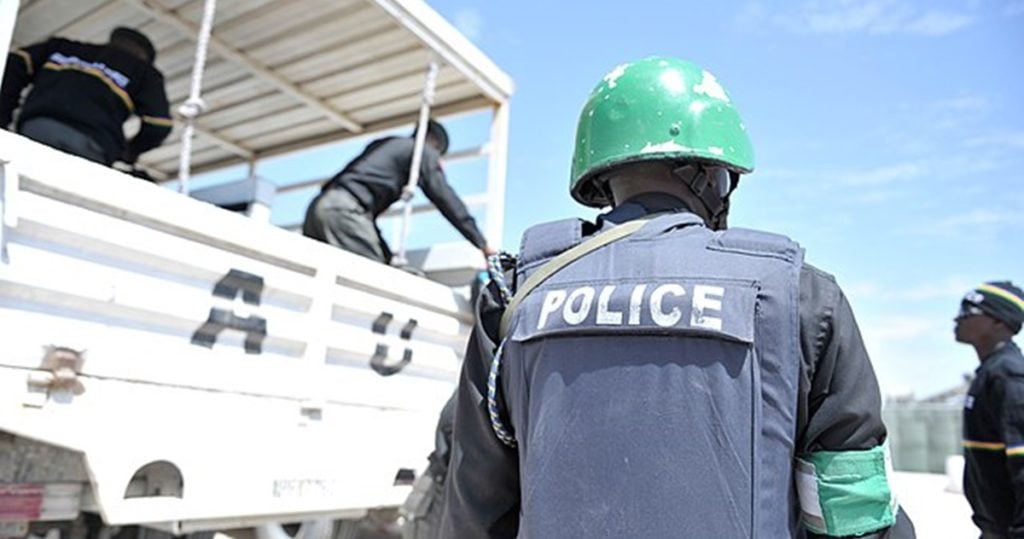
Africa Gay Raids and Rising Violence
Laws that criminalize LGBTQ identities landed two Cameroonian trans women in prison last month. An anti-LGBTQ rally in Senegal drew hundreds last month, with one speaker stating that Senegal “is homophobic and will remain so forever.” Even nations with better protections for LGBTQ populations like South Africa have dealt with a rash of anti-LGBTQ sentiment and violence in recent months. Eight LGBTQ South Africans have been murdered since February.
Multiple mass arrests in nations across Africa occurred in recent months with those detained being punished explicitly for or under suspicion of their LGBTQ identity. 44 people were arrested by police in Nansana, Uganda, last month when police raided an LGBTQ shelter.
“Today, homosexuality is simply not accepted by the majority of African citizens.
Ugandan MP Fox Odoi-Oywelowo
Uganda's constitution prohibits same-sex marriage and further criminalizes LGBTQ relationships and sexual acts. According to Sexual Minorities Uganda executive director Frank Mugisha, nearly 20 of those arrested were subjected to anal examinations. 39 of the 44 were released on bail last week.
The arrest of 21 attendees of a LGBTQ conference in Ghana in late May garnered a wide social media push against their detainment. According to CNN, authorities said the group was arrested for “advocating LGBTQ activities” and were charged with unlawful assembly. A ruling on the group's bail application was delayed last week.
The rise in violence toward LGBTQ identities in the first African nation to legalize gay marriage speaks to how discriminatory attitudes toward LGBTQ Africans remain systemic beyond political shifts.”Today, homosexuality is simply not accepted by the majority of African citizens. And the LGBTQI fight for equality and recognition in Africa will not be over until it is,” said Ugandan MP Fox Odoi-Oywelowo in an Aljazeera op-ed.
Evangelical Erasure and ‘Western Values'
Odoi-Oywelowo helped defeat the eloquently named “Kill the Gays bill” introduced in Uganda's parliament in 2014 and believes that international pressure similar to what the Ugandan government endured then will help address LGBTQ criminalization in other African nations.
It's for this very reason that he believes the recently passed anti-LGBTQ legislation that would send LGBTQ people to jail for 10 years simply for who they are isn't likely to become federal law.
But cultural attitudes present a different obstacle with little to no political pressure points. Much of the conversation around those attitudes point to deeply conservative religious beliefs, both Christian and Muslim, at the core of African anti-LGBTQ sentiments. Ministers like the recently deceased Nigerian pastor TB Joshua have stoked fears, categorizing LGBTQ people as having a “demonic spirit” in them that he can “cure.”
Will Uganda pass another law criminalizing homosexuality in the future? If it does, we will contest it again, fight it again, and overturn it again.
Ugandan mp Fox Odoi-Oywelowo
The spread of Christianity during the centuries of European colonization in the continent also effectively whitewashed indigenous characterizations and attitudes that were more positive to LGBTQ communities.
To Odoi-Oywelowo, the first step is for those on the outside looking in to correctly identify why so many Africans hold anti-LGBTQ sentiments. “Neither should we be so certain, as some are, that the pervasiveness of anti-LGBTQI sentiment in Africa is owing to some malignant and deceptive Christian influence,” he said.
“Most Africans are refusing to accept homosexuality not so much because of their Christian beliefs, but because they perceive it as a “Western value” being forcefully pushed upon their societies by malignant and invasive outside forces,” Odoi-Oywelowo added. “This may seem perverse given Christianity itself was brought to Africa by European colonial missionaries. But that was a long time ago. In the present, many Africans express their patriotism and defiance to the West by railing against what they perceive as “modern-day” western interference.”
‘We Will Contest It Again'
Despite the continued criminalization and stigmatization of LGBTQ Africans, Odoi-Oywelowo believes that increased internet access in Uganda opening up more LGBTQ educational resources and a significant decrease in anti-LGBTQ attitudes in Ugandan youth harkens to a positive shift in cultural ideals toward LGBTQ communities.
Conversations around making gender-neutral markers available on South African IDs and amending the nation's polygamy laws to allow polyandry and make all marriages gender-neutral show that progressive, inclusive ideas are on the table. But that is just one of the diverse collection of nations that all too often get lumped together in the Western gaze. However, if one can entertain inclusion, so can others.
“This newfound access to knowledge, information and differing points of view is having a vast, transformational effect on the electorate. With our youthful population, so many young, knowledgeable Ugandans, who do not carry strong anti-gay sentiments, and even support LGBTQI rights, are joining the electoral roll in every election cycle,” Odoi-Oywelowo said. “Will Uganda pass another law criminalizing homosexuality in the future? If it does, we will contest it again, fight it again, and overturn it again.”



